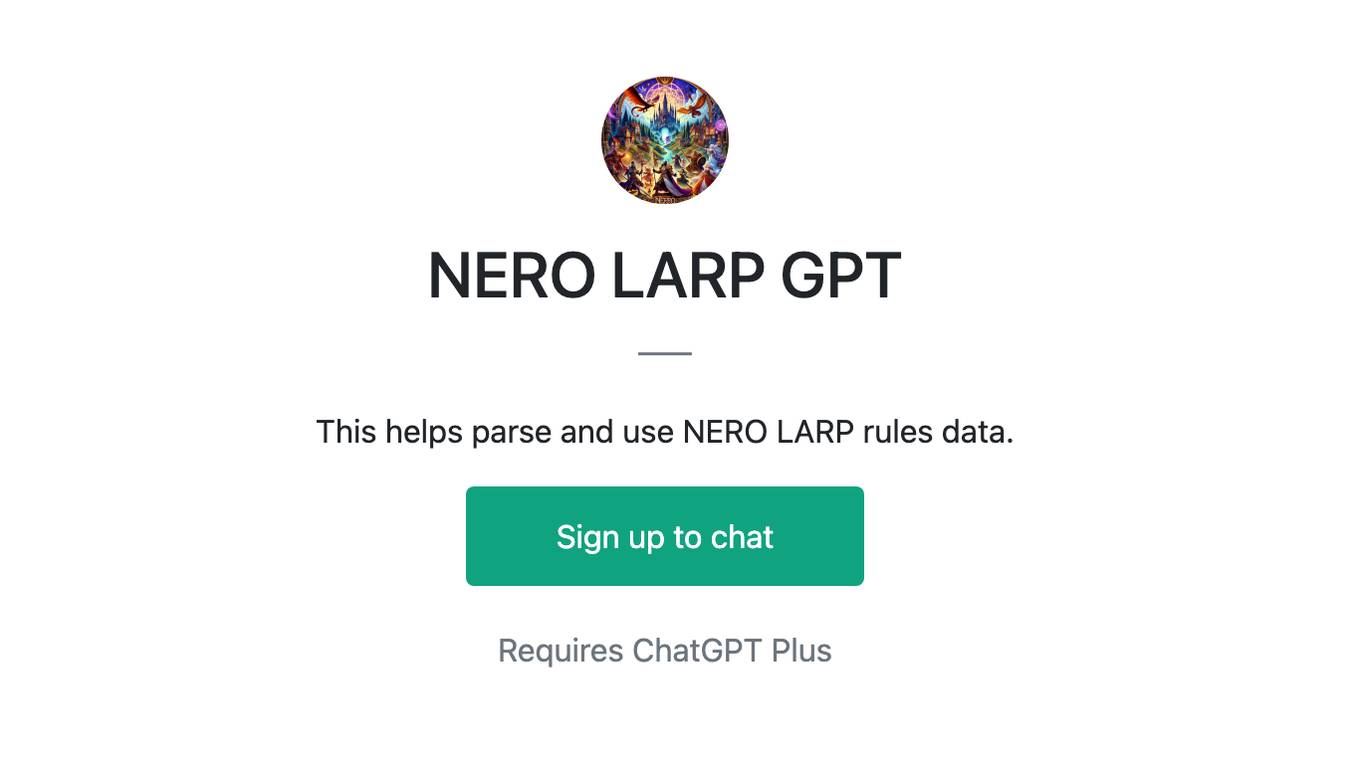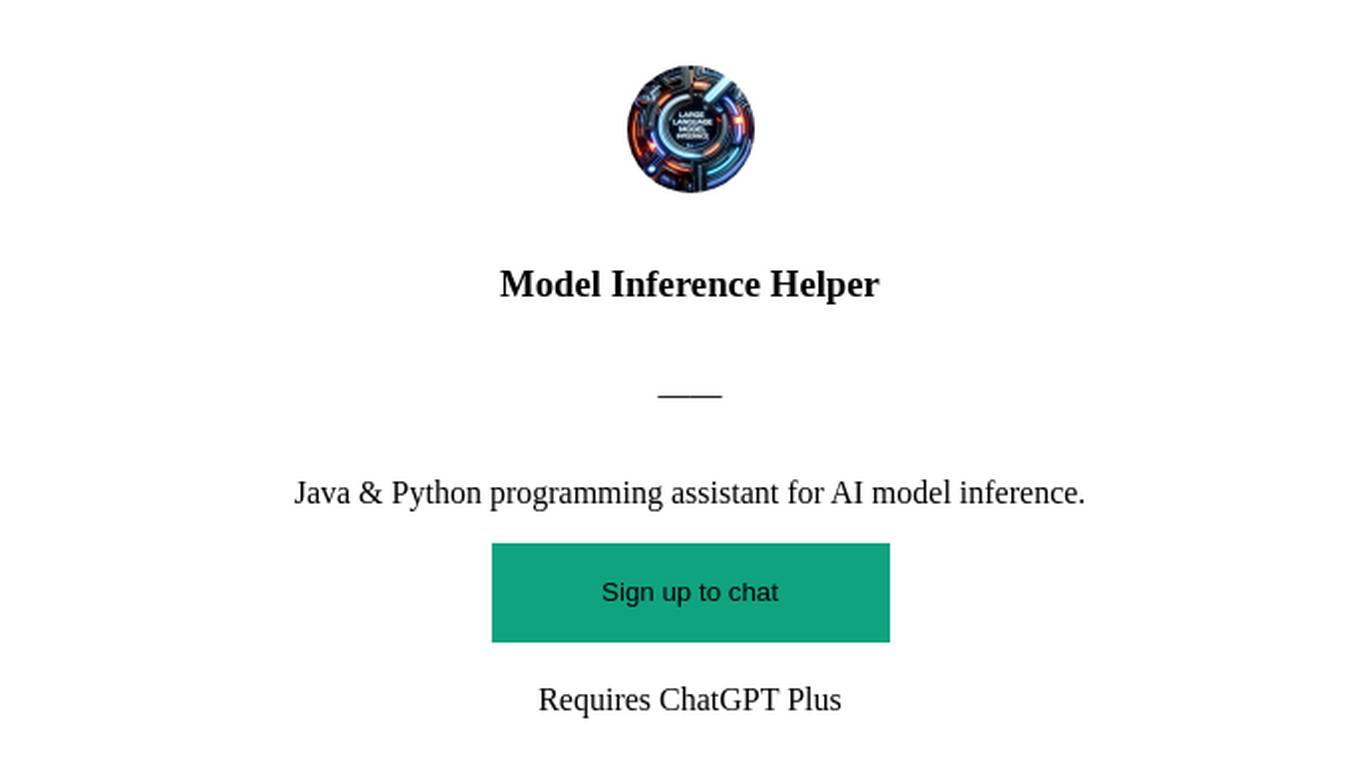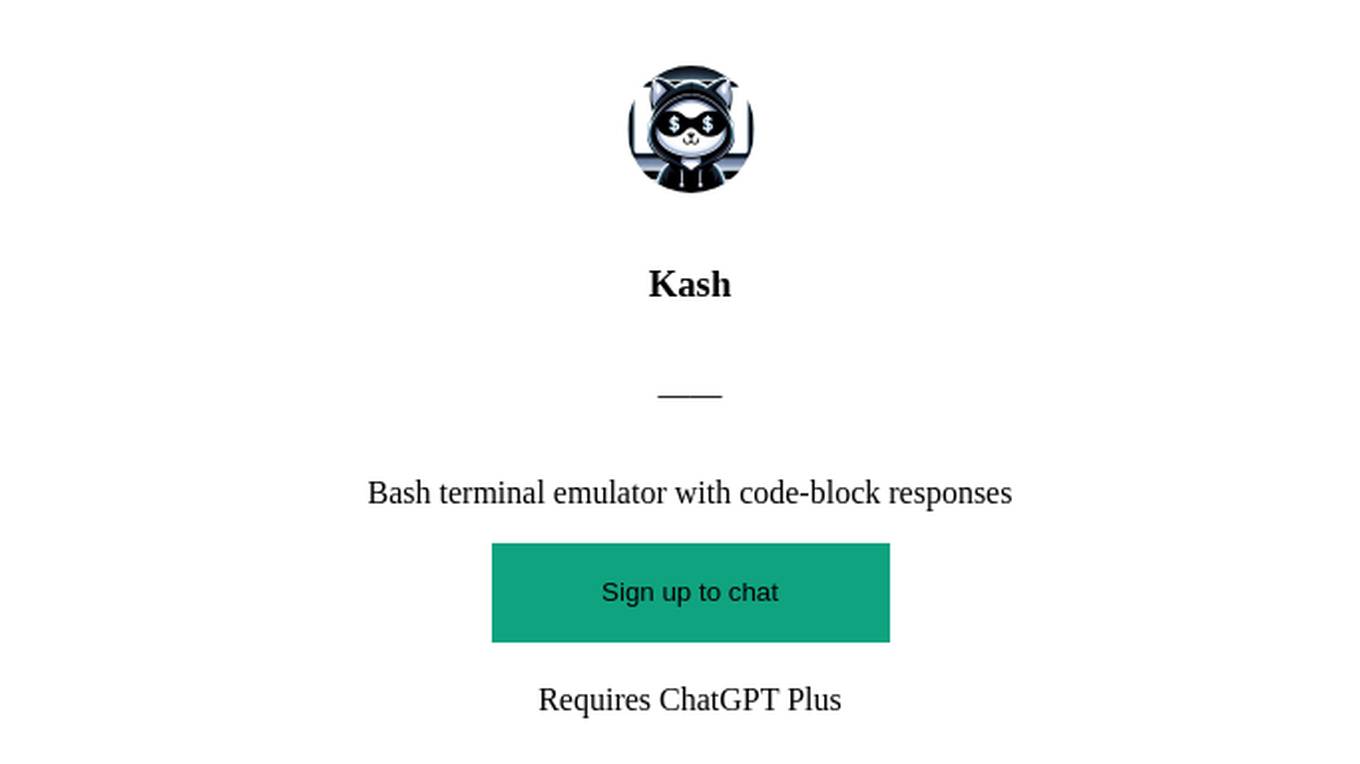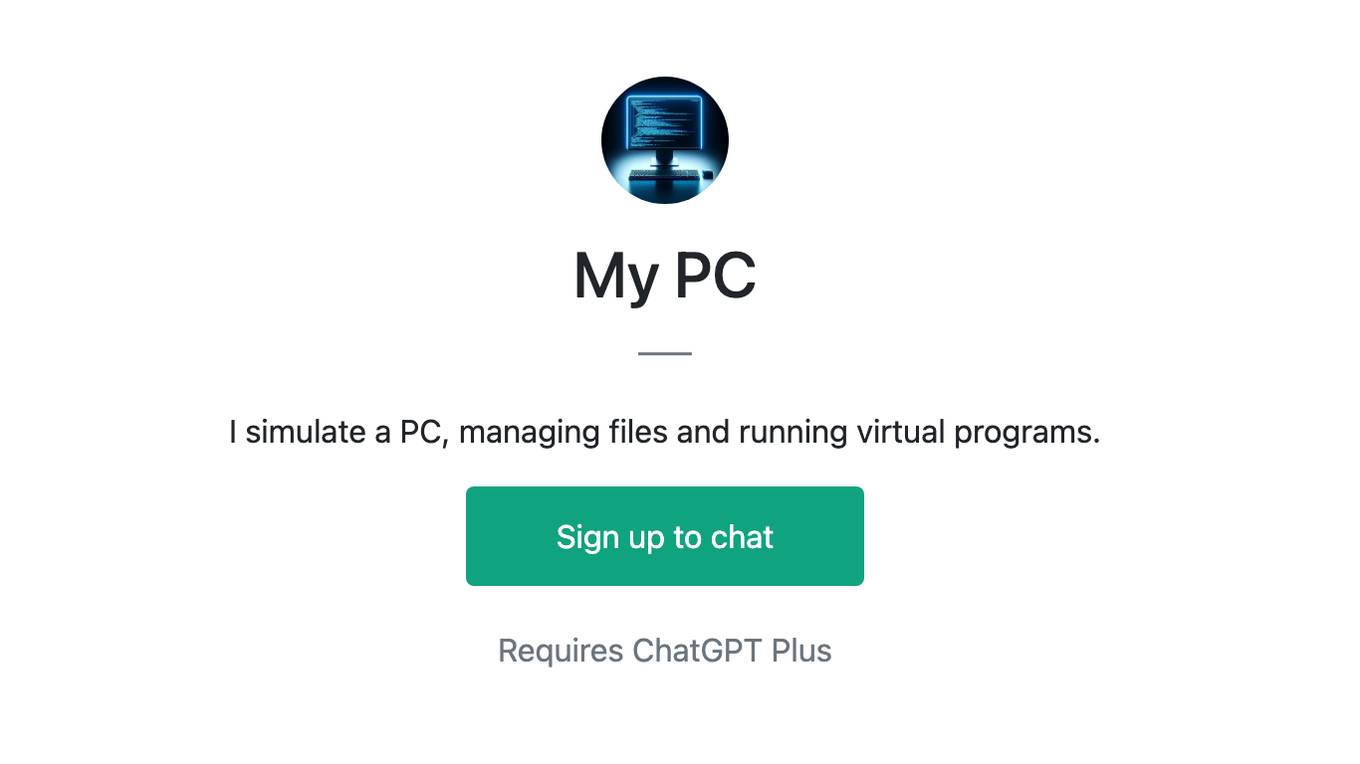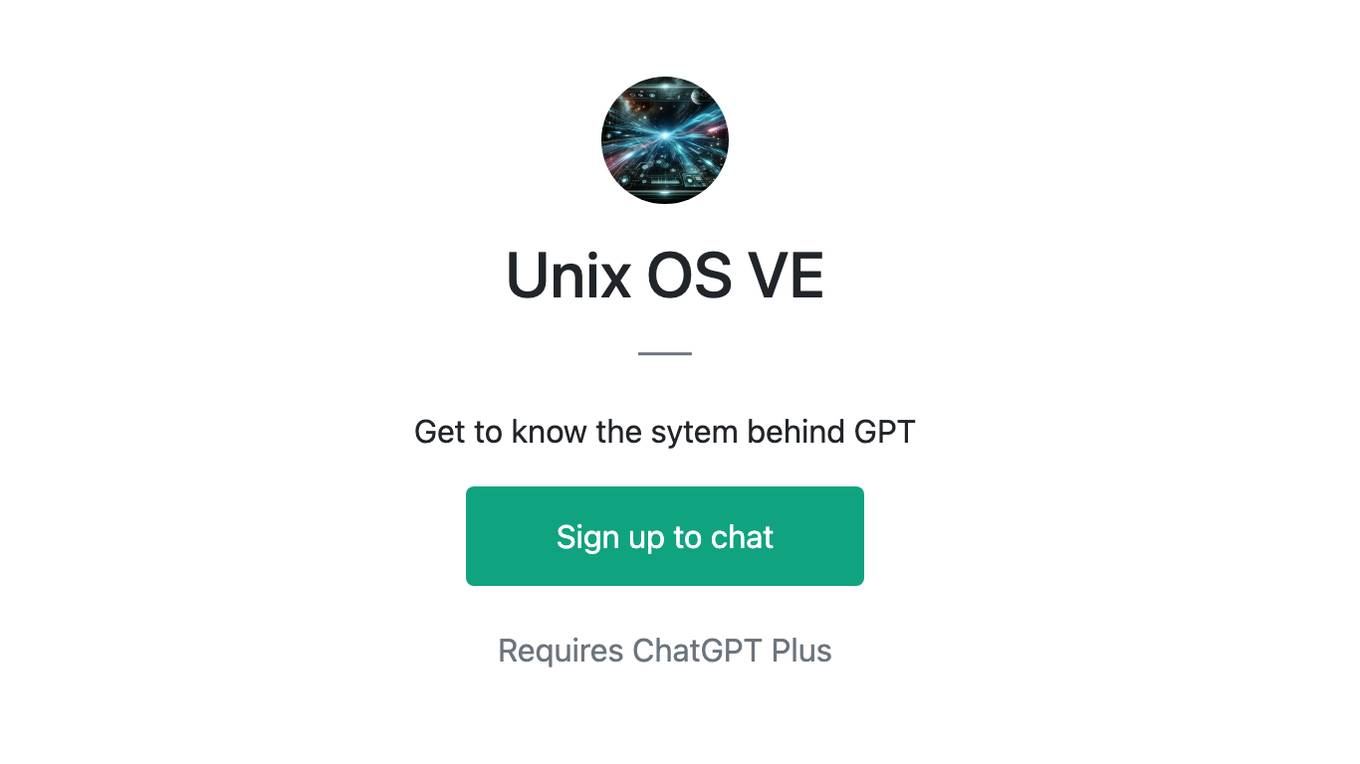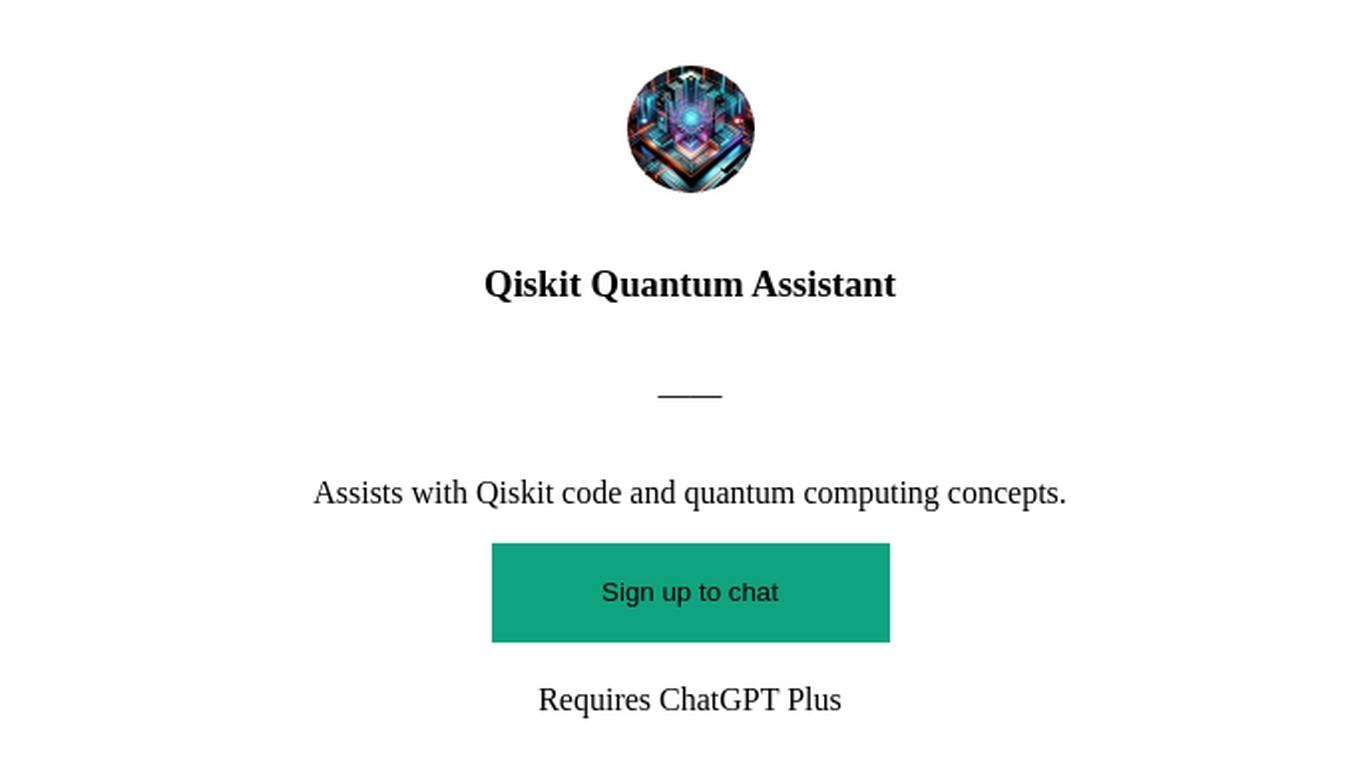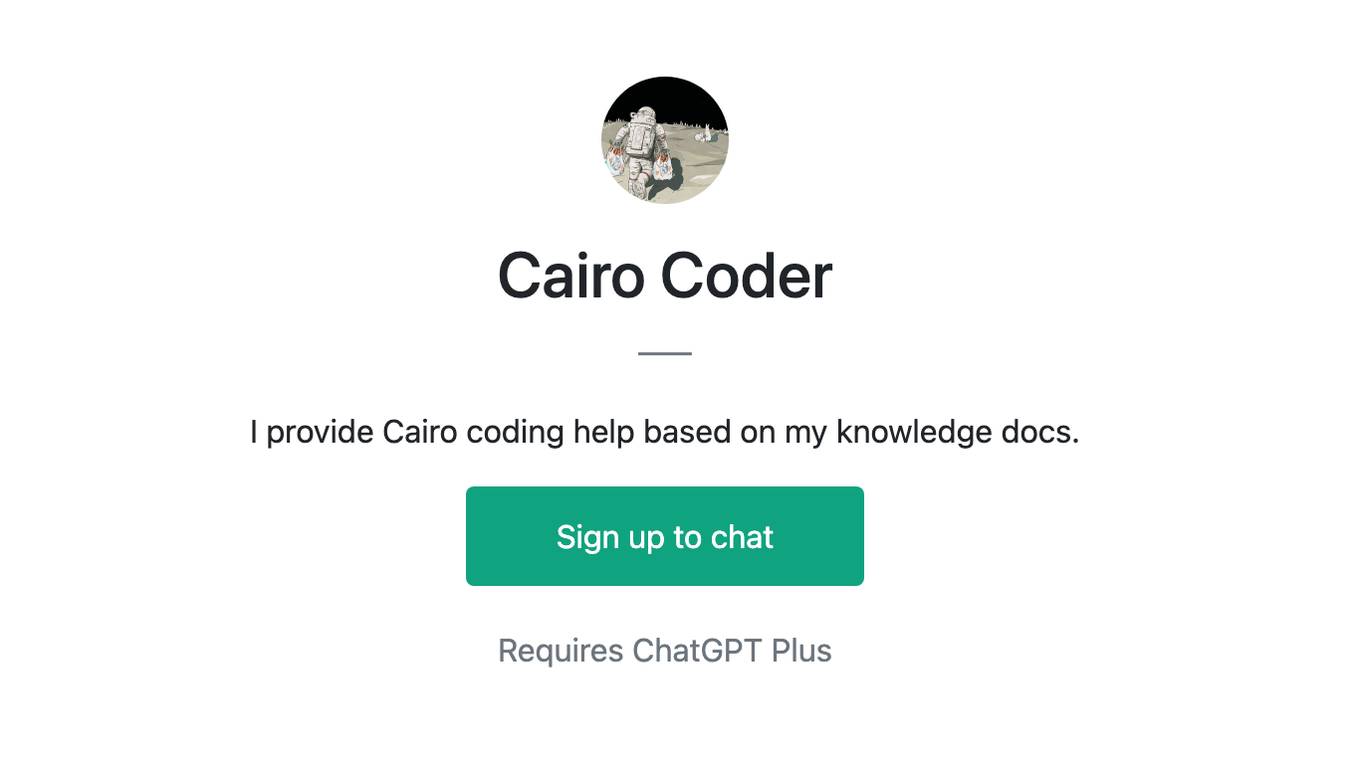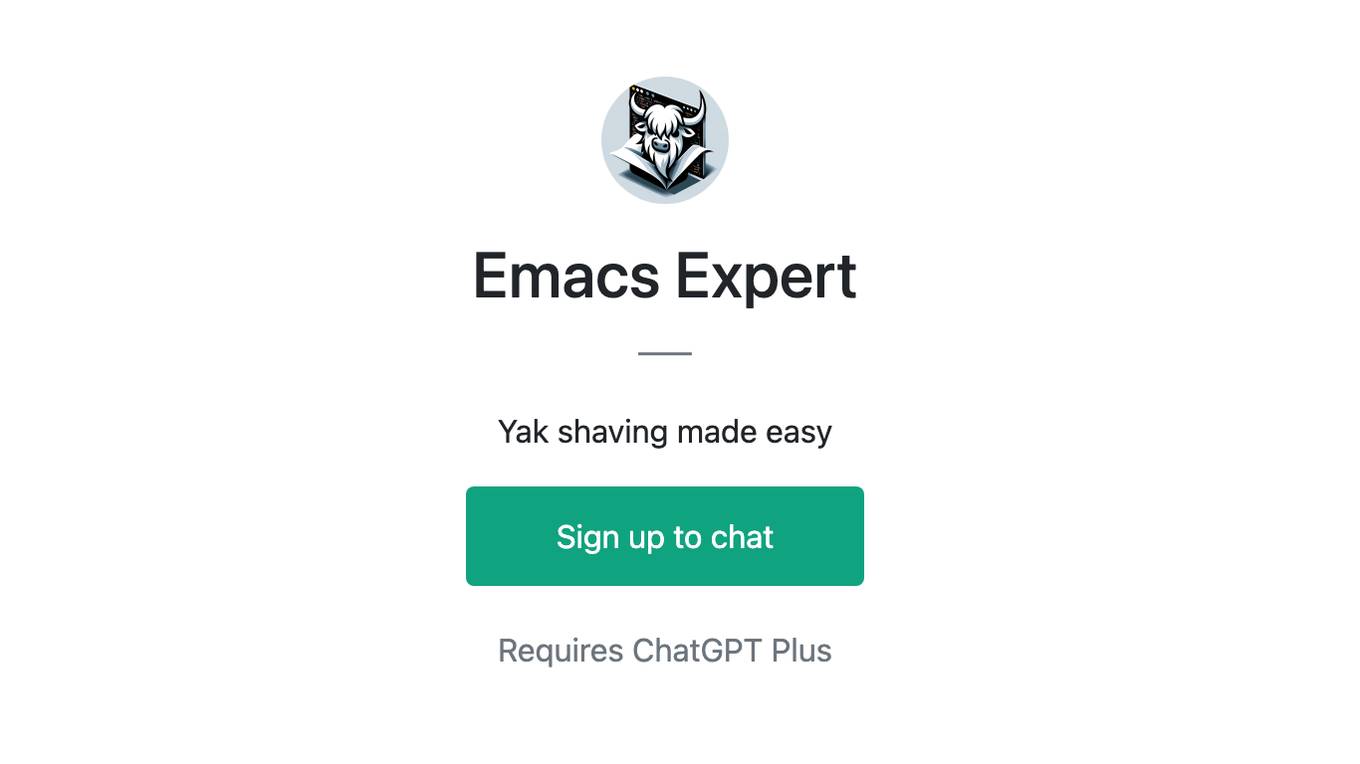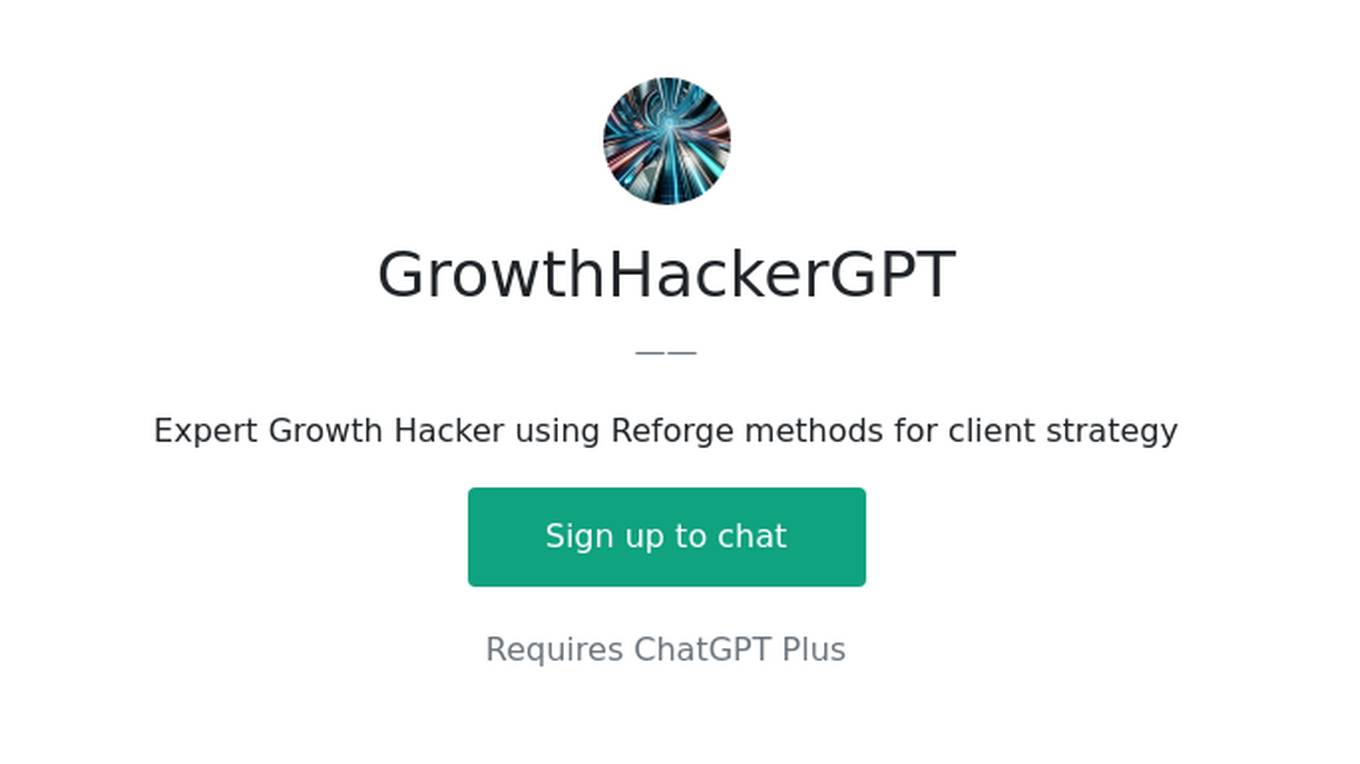Best AI tools for< Run Data Extraction Job >
20 - AI tool Sites
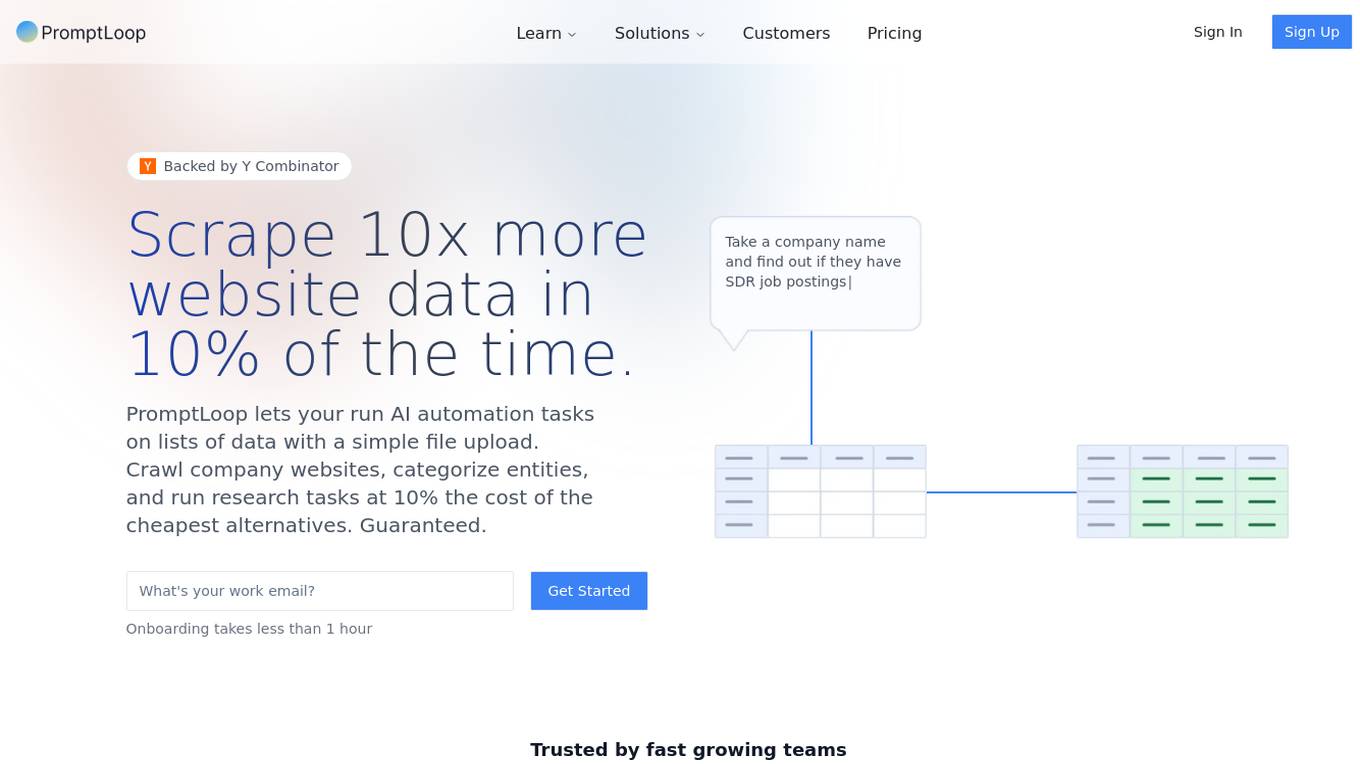
PromptLoop
PromptLoop is an AI-powered web scraping and data extraction platform that allows users to run AI automation tasks on lists of data with a simple file upload. It enables users to crawl company websites, categorize entities, and conduct research tasks at a fraction of the cost of other alternatives. By leveraging unique company data from spreadsheets, PromptLoop enables the creation of custom AI models tailored to specific needs, facilitating the extraction of valuable insights from complex information.
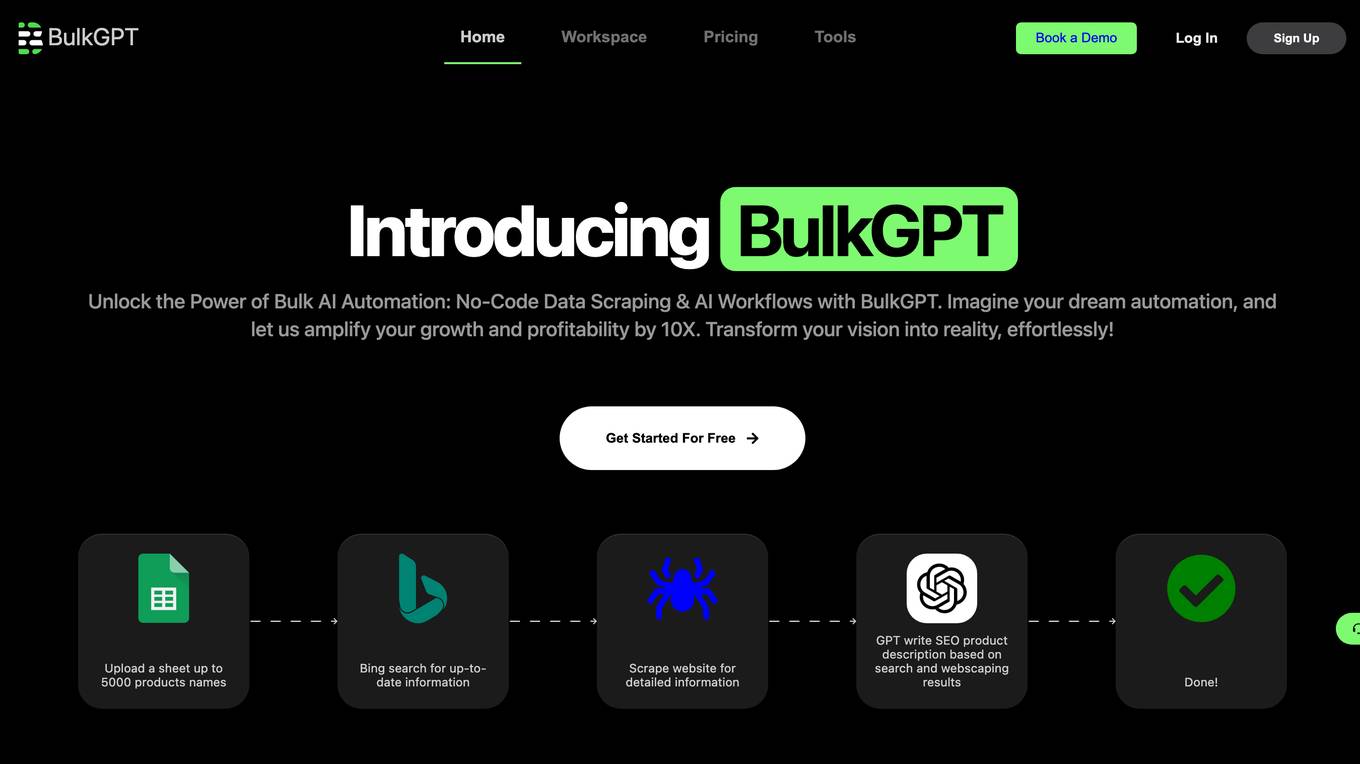
BulkGPT
BulkGPT is a no-code AI workflow automation tool that allows users to build custom workflows for mass web scraping and content creation without the need for coding. It simplifies tasks such as scraping web pages, generating SEO blogs, and creating personalized messages. The tool enables users to upload data, run it in Google Sheets, integrate it with other tools via API, and automate content creation efficiently. BulkGPT offers features like web scraping in Google Sheets, crawling any URL for data extraction, and AI-powered tasks such as SEO content creation, e-commerce product description generation, ChatGPT automation, data scraping, and marketing email campaigns.

Qubinets
Qubinets is a cloud data environment solutions platform that provides building blocks for building big data, AI, web, and mobile environments. It is an open-source, no lock-in, secured, and private platform that can be used on any cloud, including AWS, Digital Ocean, Google Cloud, and Microsoft Azure. Qubinets makes it easy to plan, build, and run data environments, and it streamlines and saves time and money by reducing the grunt work in setup and provisioning.
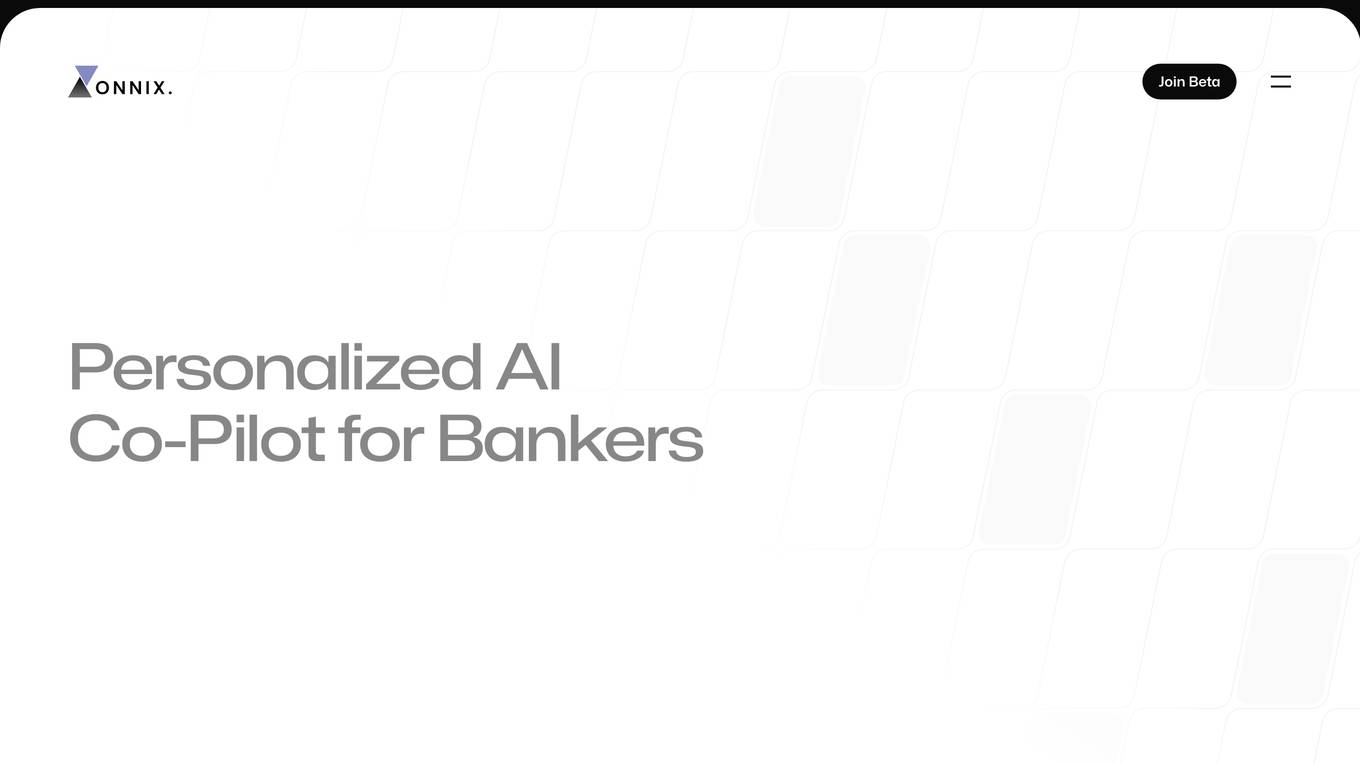
Onnix AI
Onnix AI is a personalized AI co-pilot designed specifically for bankers, aiming to save teams time by providing accurate answers and deliverables quickly. It brings AI and powerful data science tools to the banking sector, offering features such as creating personalized slide decks, conducting Excel analysis, and querying data sources. Onnix AI caters to both senior and junior teams, enabling them to generate deeper insights and streamline their workflow efficiently.
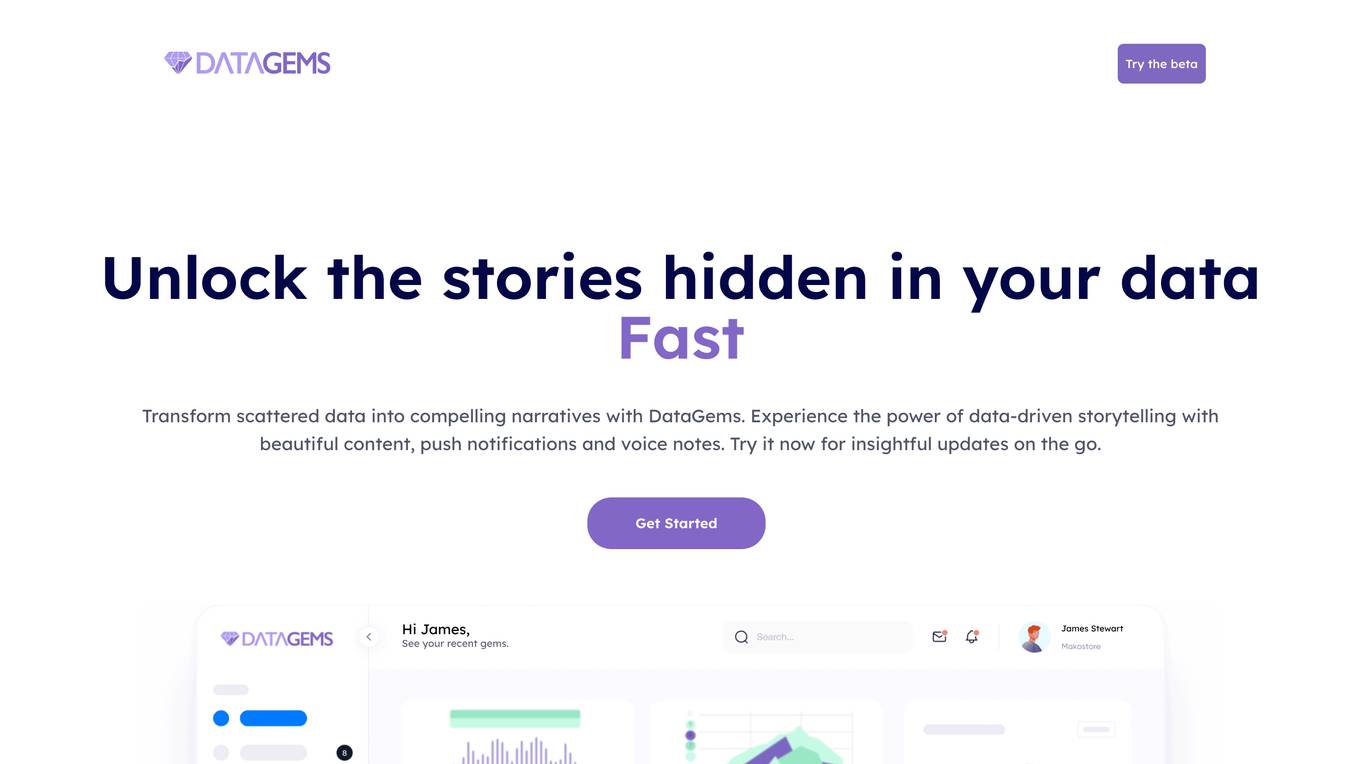
DataGems
DataGems is an AI copilot for marketers, offering a personalized AI assistant to automate marketing tasks, optimize campaigns with AI, and provide real-time updates. The platform allows users to choose goals for optimization, leverage AI-generated personas, run data-driven ad campaigns, and iterate on marketing copy using a gamification-style interface. DataGems empowers marketers to stay ahead by uncovering valuable, data-driven opportunities consistently.

Genius Sheets
Genius Sheets is a self-service data reporting tool that allows users to connect to data in Excel and Google Sheets and generate reports without the need for SQL or Python. It is designed to be easy to use and provides enterprise-grade security. Genius Sheets is trusted by over 100 companies and has been featured in publications such as Forbes and TechCrunch.

NVIDIA Run:ai
NVIDIA Run:ai is an enterprise platform for AI workloads and GPU orchestration. It accelerates AI and machine learning operations by addressing key infrastructure challenges through dynamic resource allocation, comprehensive AI life-cycle support, and strategic resource management. The platform significantly enhances GPU efficiency and workload capacity by pooling resources across environments and utilizing advanced orchestration. NVIDIA Run:ai provides unparalleled flexibility and adaptability, supporting public clouds, private clouds, hybrid environments, or on-premises data centers.

Practice Run AI
Practice Run AI is an online platform that offers AI-powered tools for various tasks. Users can utilize the application to practice and run AI algorithms without the need for complex setups or installations. The platform provides a user-friendly interface that allows individuals to experiment with AI models and enhance their understanding of artificial intelligence concepts. Practice Run AI aims to democratize AI education and make it accessible to a wider audience by simplifying the learning process and providing hands-on experience.

Viable
Viable is an AI-driven platform that provides actionable insights from qualitative data. It effortlessly transforms raw data into valuable information using AI technology. The platform offers integrations with various tech stacks and transparent pricing options to meet user requirements. Viable is designed to help businesses improve customer experience, boost employee engagement, enhance marketing strategies, prioritize product management actions, and conduct efficient research with the help of AI.
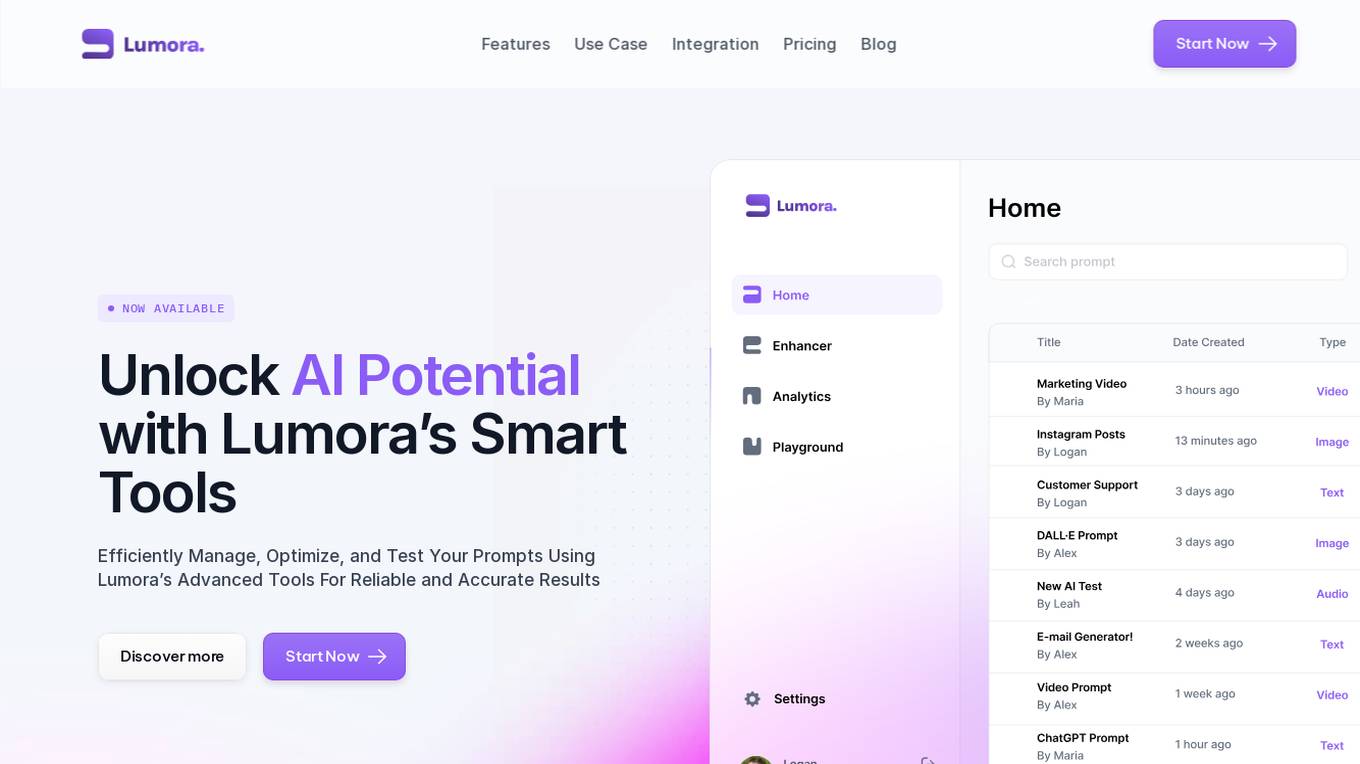
Lumora
Lumora is an AI tool designed to help users efficiently manage, optimize, and test prompts for various AI platforms. It offers features such as prompt organization, enhancement, testing, and development. Lumora aims to improve prompt outcomes and streamline prompt management for teams, providing a user-friendly interface and a playground for experimentation. The tool also integrates with various AI models for text, image, and video generation, allowing users to optimize prompts for better results.

Deep Space
Deep Space is an all-in-one AI-powered construction management software platform designed for mid-sized commercial builders in Australia and New Zealand. It replaces the need for multiple tools by providing a connected operating system that integrates costings, schedules, site teams, and systems. The platform offers features such as preconstruction, scheduling, procurement, commercial delivery, documentation, HSEQ reporting, and AI assistant solutions. Deep Space aims to streamline project management processes, improve visibility, and enhance coordination across the full project lifecycle.
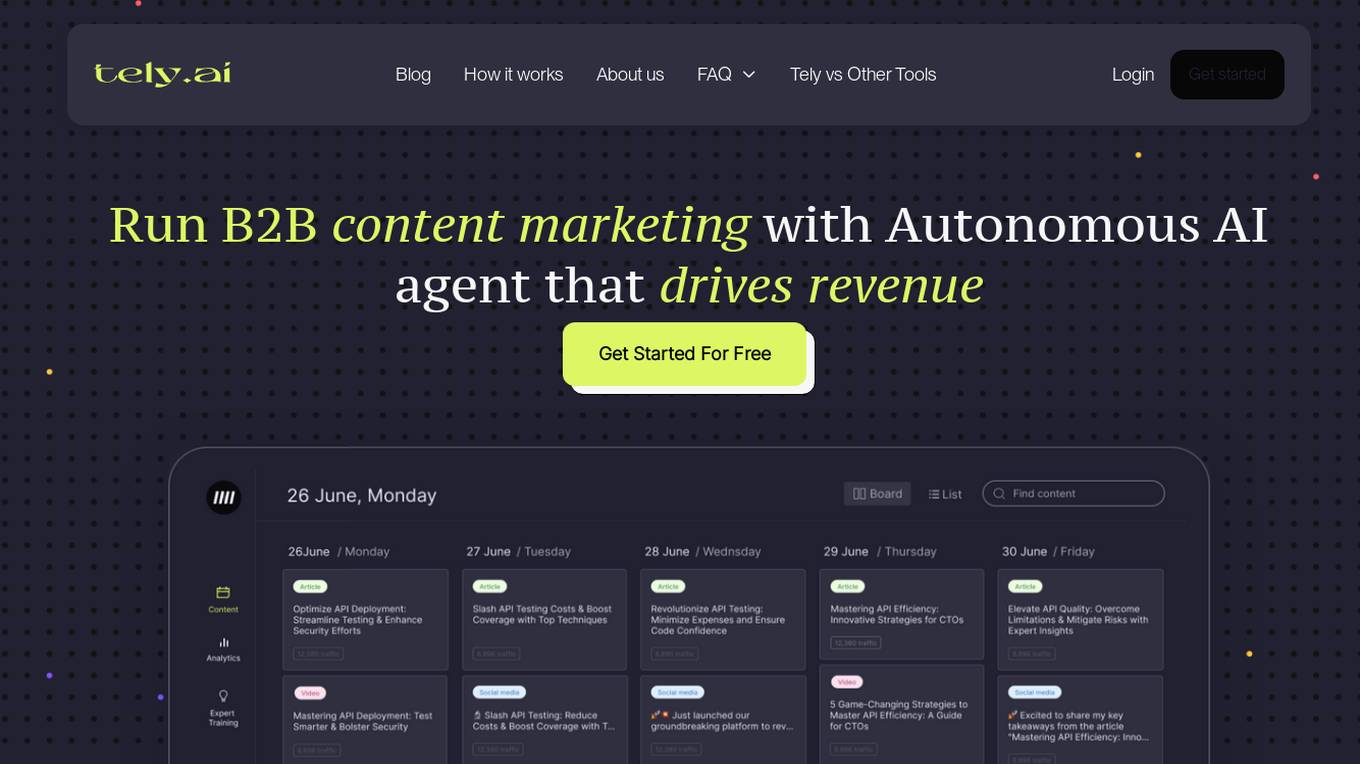
Tely
Tely is an autonomous AI agent that helps businesses run B2B content marketing. It uses machine learning to understand your product, build domain expertise, run SEO optimization, and create a content plan. Tely can also personalize your content with infographics, code snippets, experts' quotes, and call to actions. With Tely, you can drive sales with expert-level content on autopilot, reduce customer acquisition cost, increase conversion rate, and save money on marketing expenses.
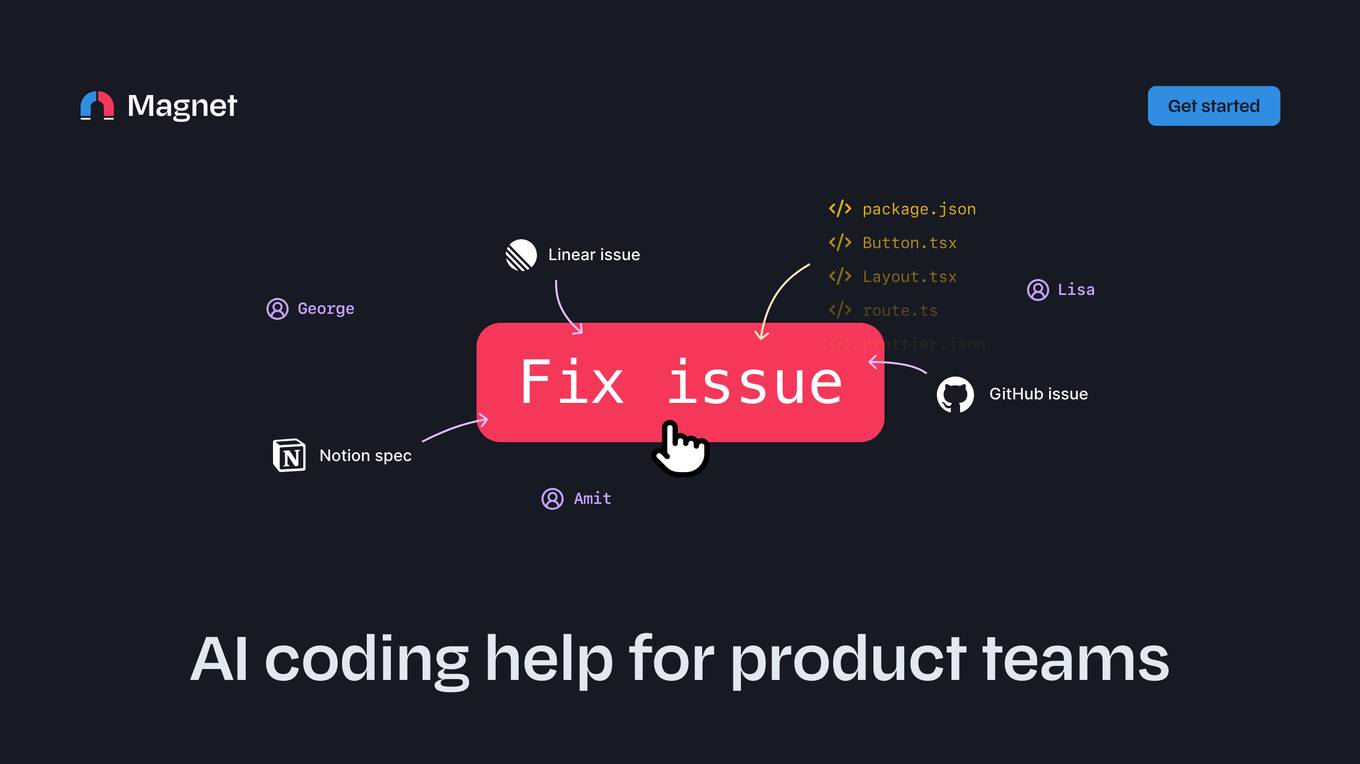
Magnet
Magnet is an AI coding assistant that helps product teams fix issues, share AI threads, and organize projects. It integrates with Linear, GitHub, and Notion, and provides auto-suggested files and code files for personalized and accurate AI recommendations. Magnet also offers prompt templates to help users get started and suggests quick fixes for bugs or enhancements.
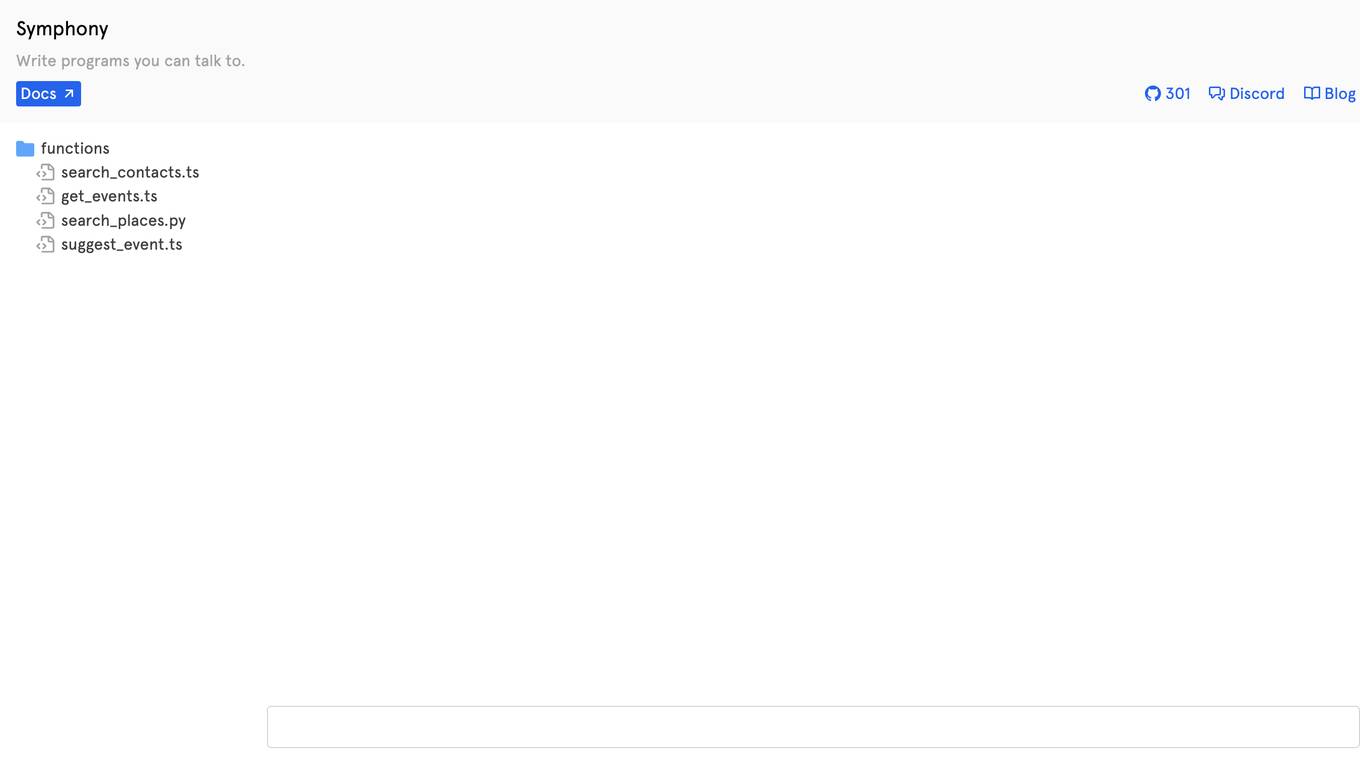
Symphony
Symphony is a platform that allows users to write programs using natural language. It enables users to interact with the system by talking to it, making programming more accessible and intuitive. Symphony simplifies the process of coding by translating spoken commands into executable code, providing a user-friendly programming experience.

aify
aify is an AI-native application framework and runtime that allows users to build AI-native applications quickly and easily. With aify, users can create applications by simply writing a YAML file. The platform also offers a ready-to-use AI chatbot UI for seamless integration. Additionally, aify provides features such as Emoji express for searching emojis by semantics. The framework is open source under the MIT license, making it accessible to developers of all levels.
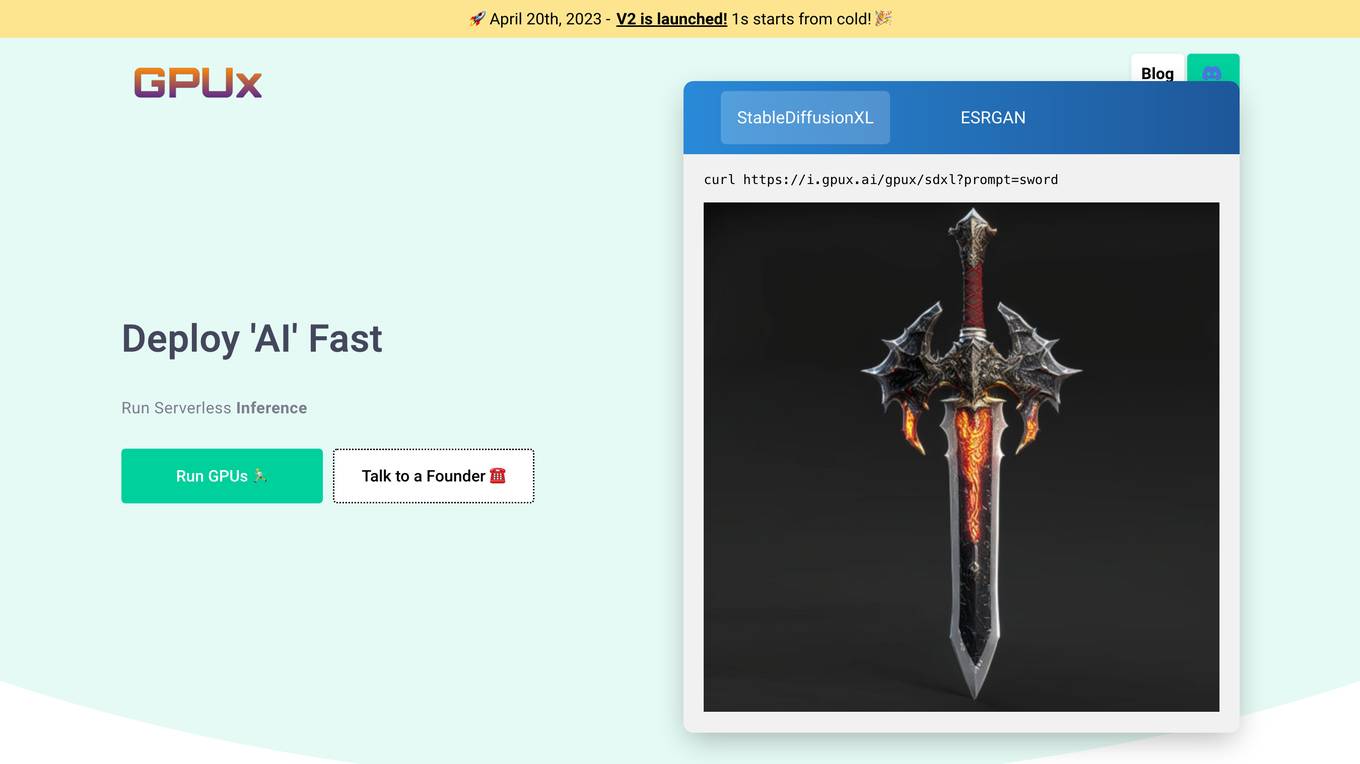
GPUX
GPUX is a cloud platform that provides access to GPUs for running AI workloads. It offers a variety of features to make it easy to deploy and run AI models, including a user-friendly interface, pre-built templates, and support for a variety of programming languages. GPUX is also committed to providing a sustainable and ethical platform, and it has partnered with organizations such as the Climate Leadership Council to reduce its carbon footprint.
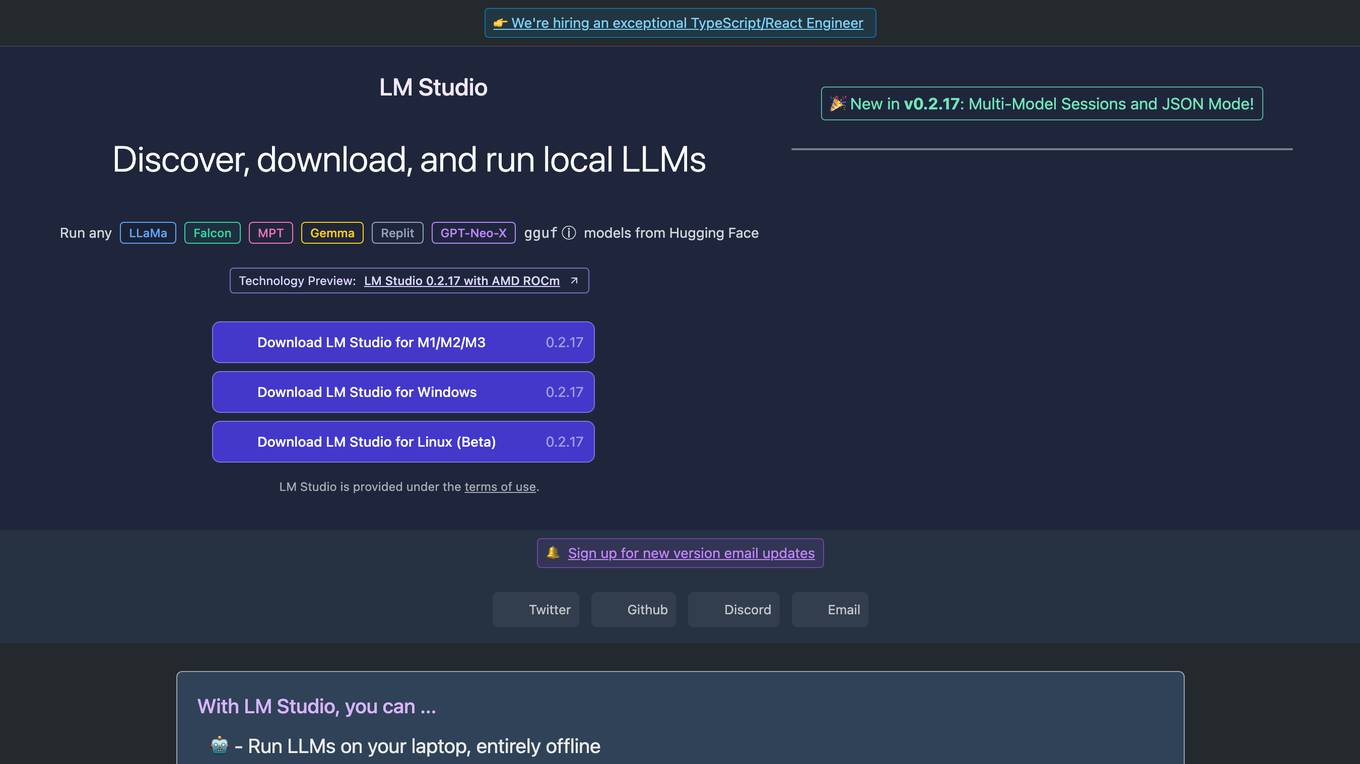
LM Studio
LM Studio is an AI tool designed for discovering, downloading, and running local LLMs (Large Language Models). Users can run LLMs on their laptops offline, use models through an in-app Chat UI or a local server, download compatible model files from HuggingFace repositories, and discover new LLMs. The tool ensures privacy by not collecting data or monitoring user actions, making it suitable for personal and business use. LM Studio supports various models like ggml Llama, MPT, and StarCoder on Hugging Face, with minimum hardware/software requirements specified for different platforms.
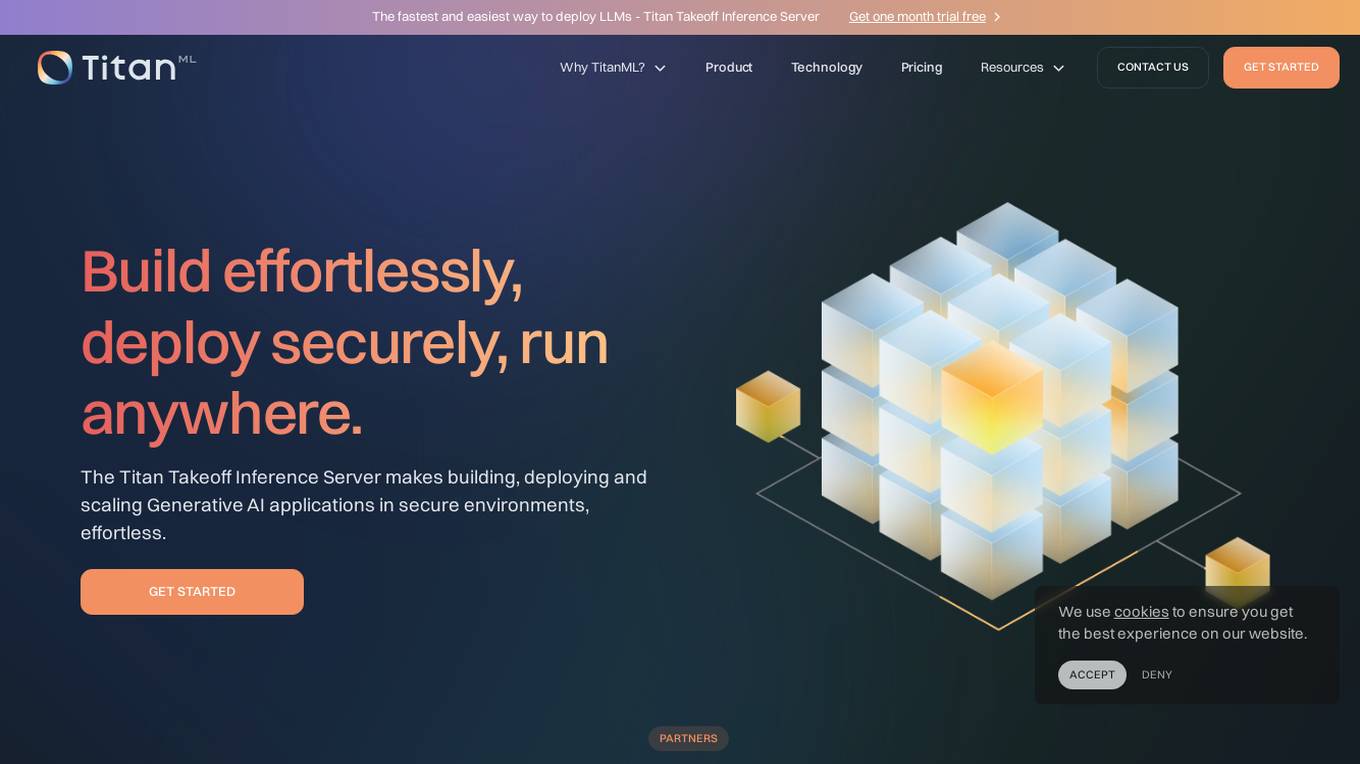
TitanML
TitanML is a platform that provides tools and services for deploying and scaling Generative AI applications. Their flagship product, the Titan Takeoff Inference Server, helps machine learning engineers build, deploy, and run Generative AI models in secure environments. TitanML's platform is designed to make it easy for businesses to adopt and use Generative AI, without having to worry about the underlying infrastructure. With TitanML, businesses can focus on building great products and solving real business problems.

Modal
Modal is a high-performance cloud platform designed for developers, AI data, and ML teams. It offers a serverless environment for running generative AI models, large-scale batch jobs, job queues, and more. With Modal, users can bring their own code and leverage the platform's optimized container file system for fast cold boots and seamless autoscaling. The platform is engineered for large-scale workloads, allowing users to scale to hundreds of GPUs, pay only for what they use, and deploy functions to the cloud in seconds without the need for YAML or Dockerfiles. Modal also provides features for job scheduling, web endpoints, observability, and security compliance.
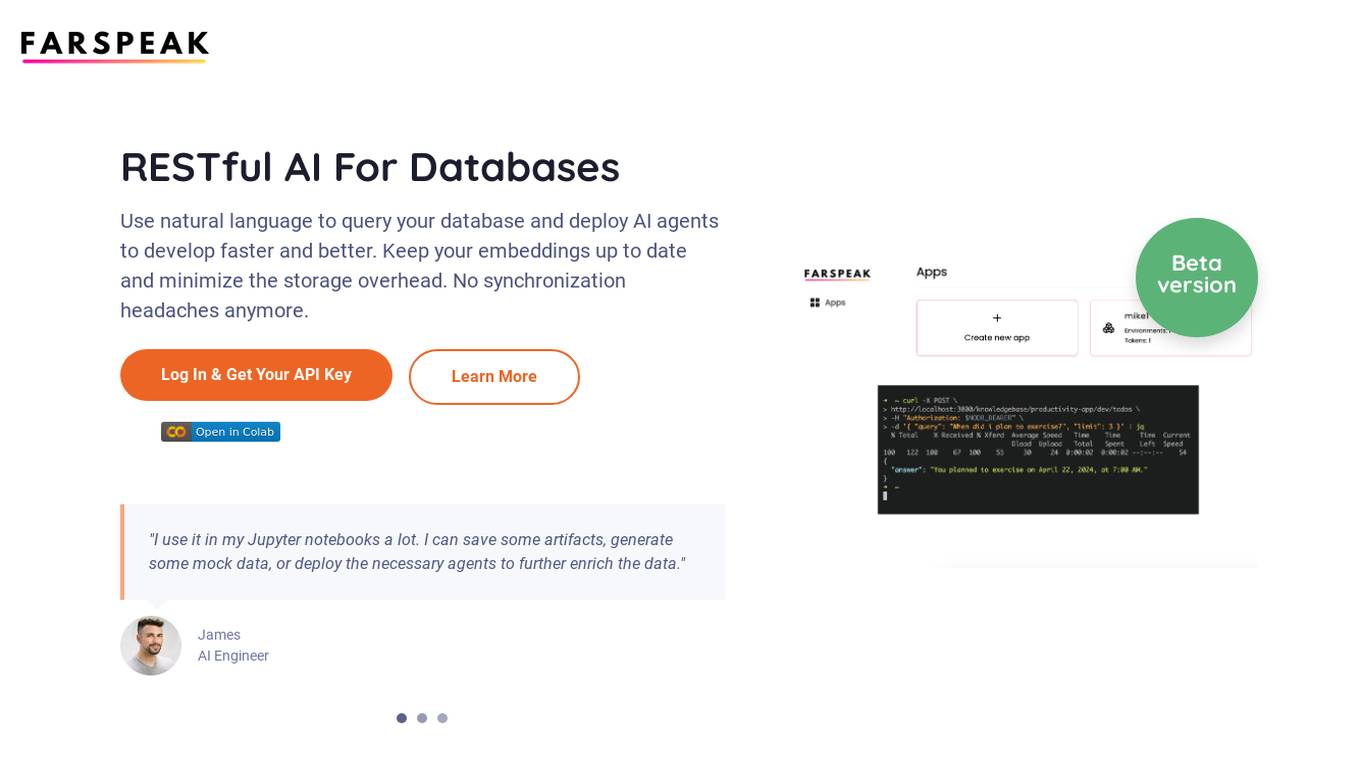
FARSPEAK.AI
FARSPEAK.AI is an AI application that offers RESTful AI for databases, allowing users to query databases using natural language and deploy AI agents to enhance data processing. The application supports MongoDB Atlas, provides up-to-date embeddings, and offers both structured and unstructured data support. FARSPEAK simplifies work for AI engineers, app & web developers, and product designers by enabling faster AI feature development, natural language querying, and insights generation from data.
1 - Open Source AI Tools
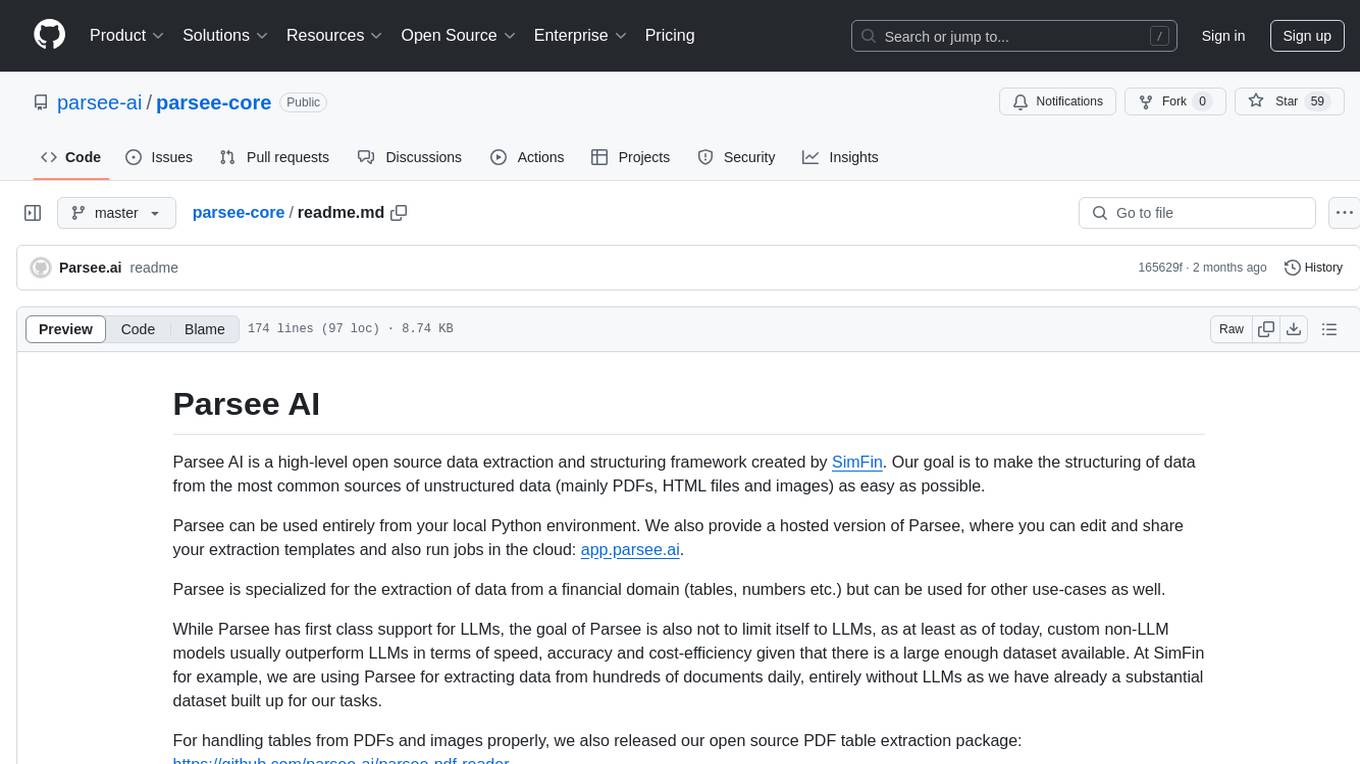
parsee-core
Parsee AI is a high-level open source data extraction and structuring framework specialized for the extraction of data from a financial domain, but can be used for other use-cases as well. It aims to make the structuring of data from unstructured sources like PDFs, HTML files, and images as easy as possible. Parsee can be used locally in Python environments or through a hosted version for cloud-based jobs. It supports the extraction of tables, numbers, and other data elements, with the ability to create custom extraction templates and run jobs using different models.
20 - OpenAI Gpts

Database Builder
Hosts a real SQLite database and helps you create tables, make schema changes, and run SQL queries, ideal for all levels of database administration.

Pace Assistant
Provides running splits for Strava Routes, accounting for distance and elevation changes
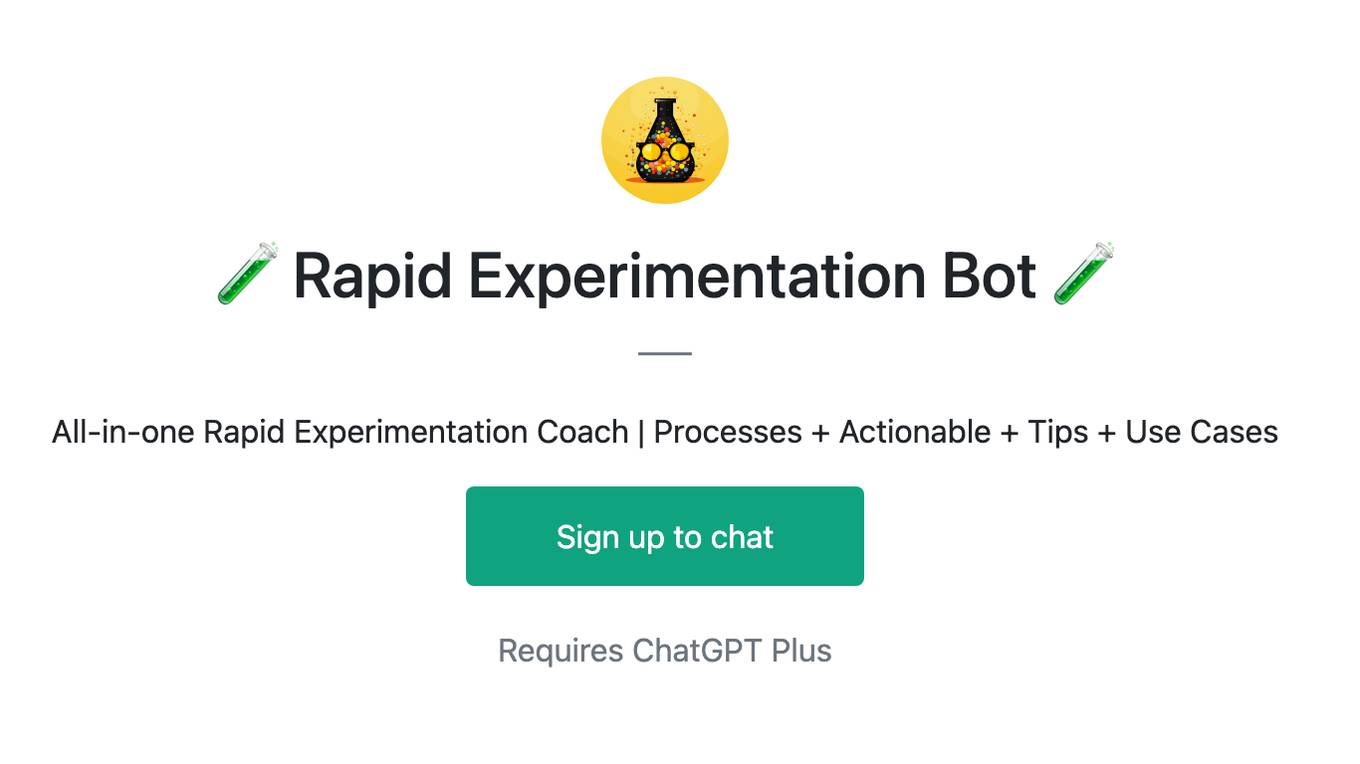
🧪 Rapid Experimentation Bot 🧪
All-in-one Rapid Experimentation Coach | Processes + Actionable + Tips + Use Cases
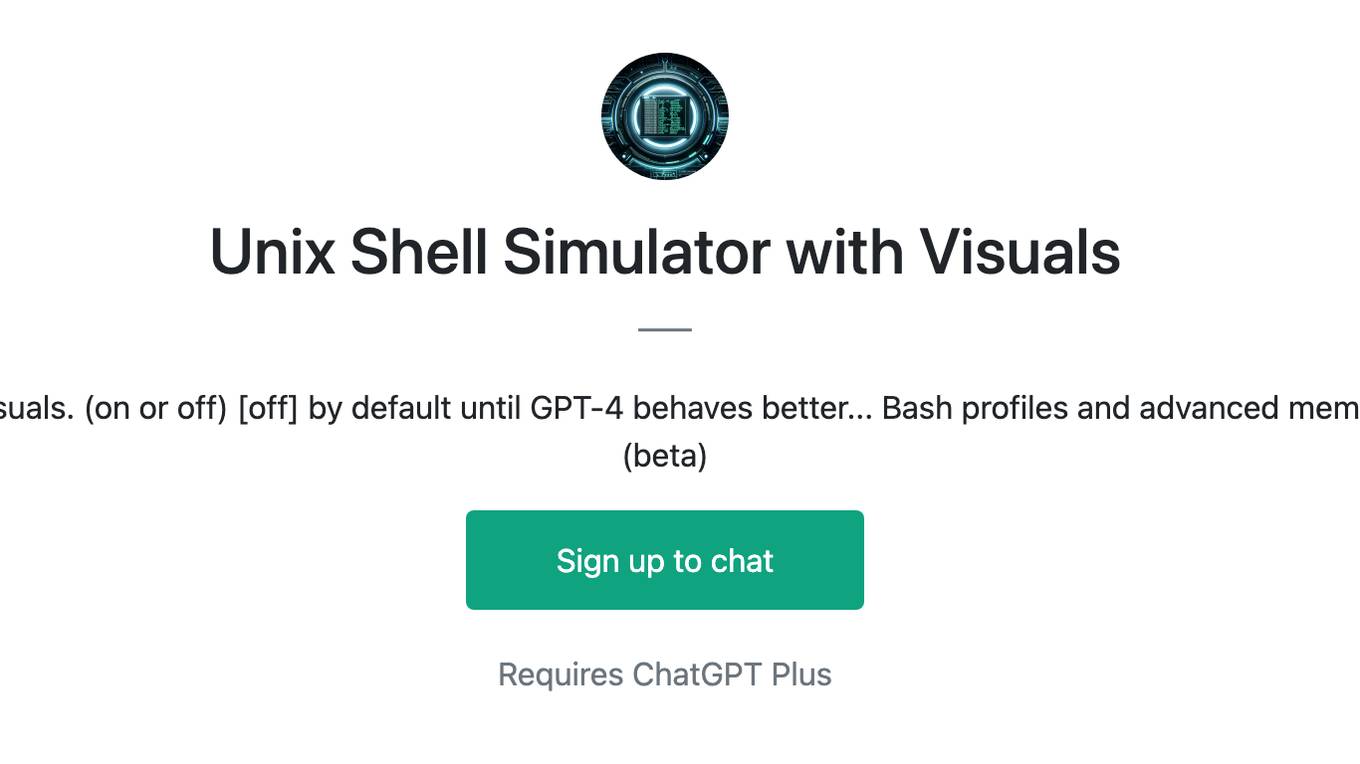
Unix Shell Simulator with Visuals
UNIX terminal responses with OS process visuals. (on or off) [off] by default until GPT-4 behaves better... Bash profiles and advanced memory system for realistic bash simulation. V1 (beta)
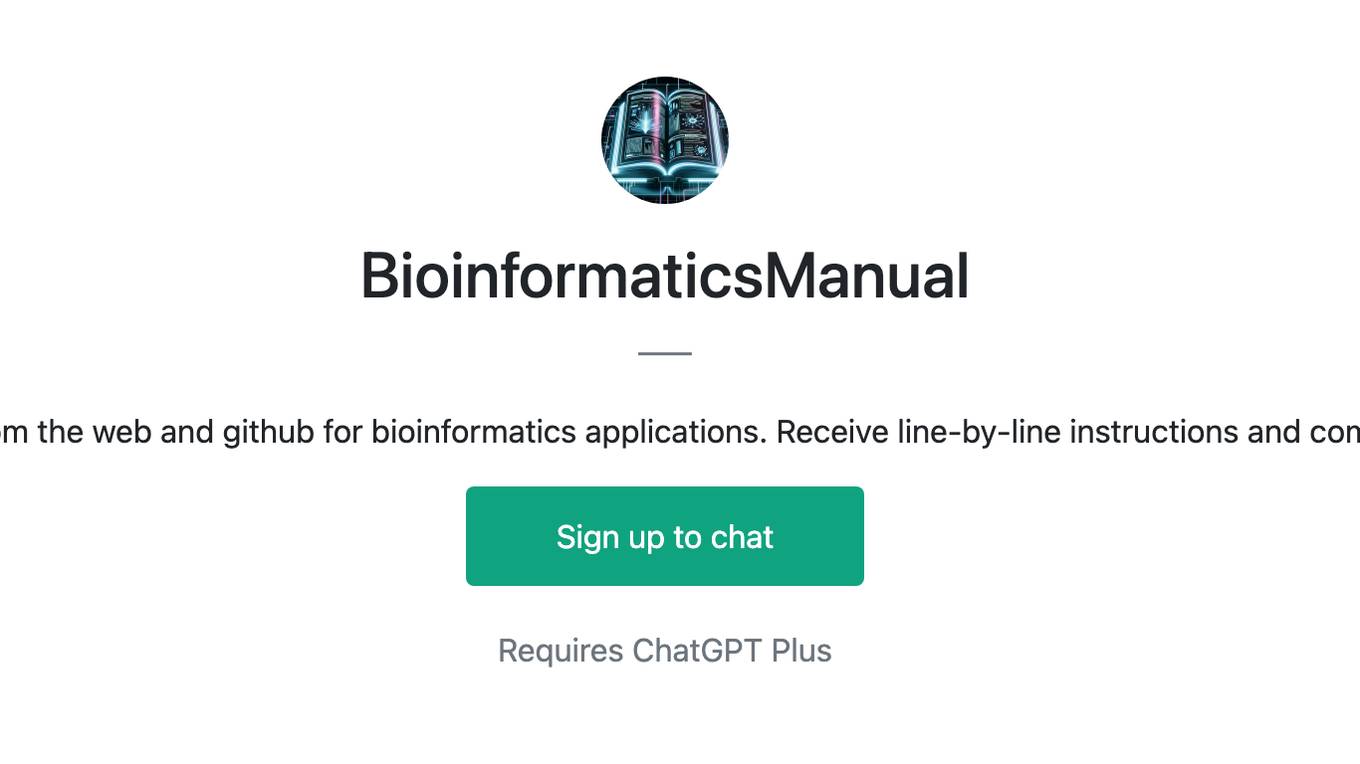
BioinformaticsManual
Compile instructions from the web and github for bioinformatics applications. Receive line-by-line instructions and commands to get started


